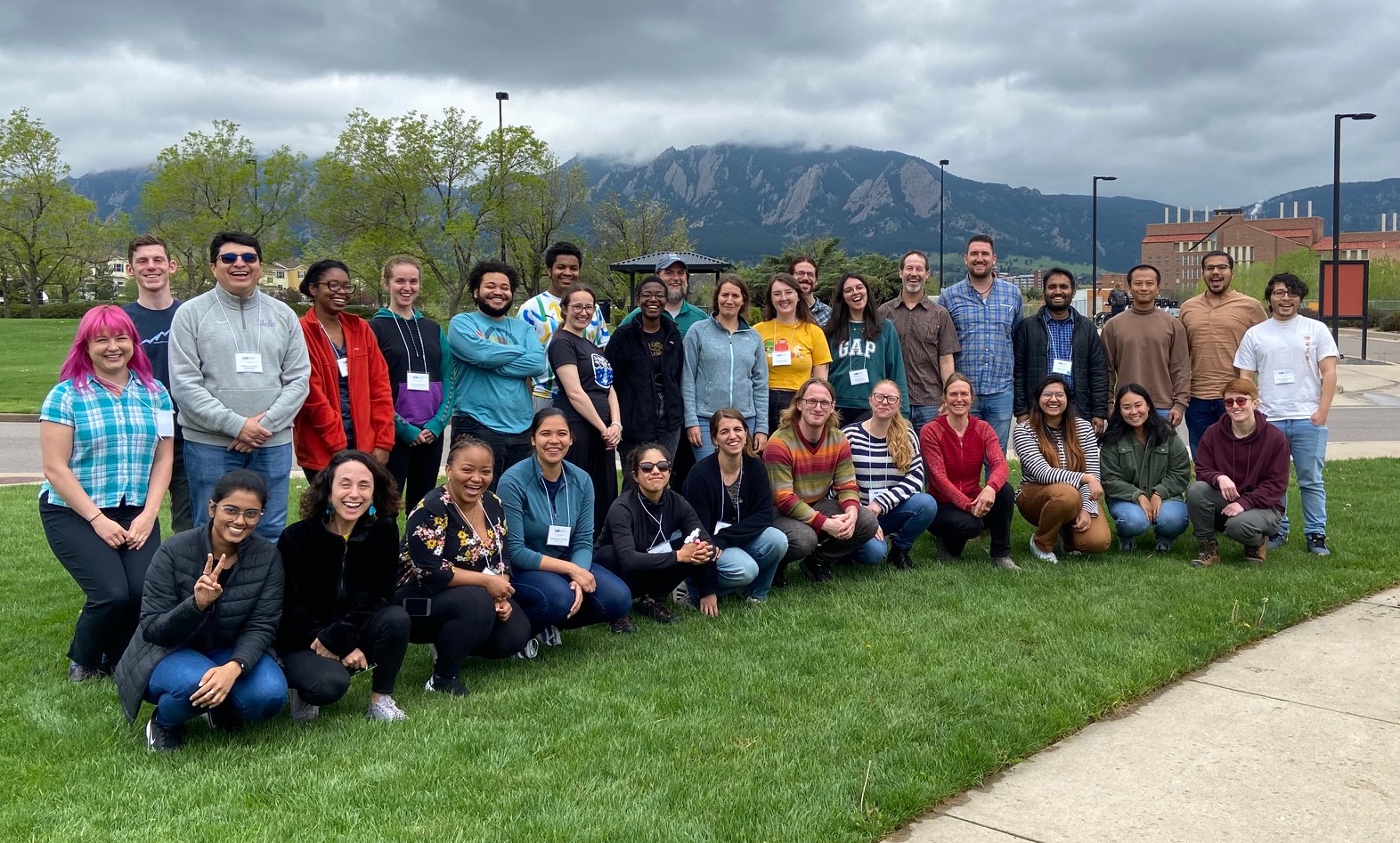ESPIn

The Earth Surface Processes Institute (ESPIn) is a six-day immersive training experience organized by CSDMS for 25 early career scientists, including graduate students, postdoctoral fellows, researchers, and faculty. ESPIn is designed to help participants advance their research in earth and planetary surface processes by teaching skills in numerical modeling, in modern, collaborative, scientific software development, and in the use of open source community cyberinfrastructure. A mix of experienced scientists, visiting faculty, and research software engineers provide instruction.
ESPIn is a combination of learning and doing.

ESPIn uses the CSDMS Ivy course material, with topics including:
- Project Jupyter
- Introduction to the Shell
- Text Editors and Development Environments
- The Anaconda Distribution
- Introduction to Version Control with Git and GitHub
- Basics of Python Programming
- Python Programming for ESP Scientists
- Landlab
- The Permamodel Toolkit
- The Basic Model Interface
- The Python Modeling Toolkit
- High-Performance Computing
- Best Practices in Scientific Software Development
ESPIn kicks off with a big ideas, mini poster session: participants create a poster from two sheets of paper, one with research interests, the other with personal interests. This session helps participants introduce themselves and find shared interests.
ESPIn isn't just about instruction. Daily time blocks are dedicated to working in small, self-organized teams on a research, data analysis, and coding project. Participants can also work on developing and advancing their own research. Get a taste of past ESPIn team projects by checking out their webinars and labs.
ESPIn includes dedicated time for a local field trip, peer-to-peer networking, and professional development, including a career panel.
ESPIn concludes with team project presentations, which set up participants to continue to develop ideas.
For questions regarding ESPIn, please contact us at csdms_espin@colorado.edu.
ESPIn 2024
CSDMS is excited to announce that ESPIn 2024 will be held July 29th through August 6th at the Sustainability, Energy and Environment Community (SEEC) facility on the CU Boulder East Campus.
Participant costs (reimbursement for transportation costs up to $600 for national and $1200 for international students, enrollment, accommodations, breakfast and lunch on teaching days) will be supported for 25 participants. Continued lodging support will be provided from Sunday, July 28th through Tuesday, August 6th. Applicants are responsible for dinners, and all other incidental expenses.
All applicants selected for ESPIn 2024 are also expected to participate in a community webinar in Fall 2024 showcasing their demonstration projects.
Important Dates
- December 1: Application window opens
- January 26: Application window closes
February 16February 23March 1: Notifications- July 29-August 6: ESPIn 2024
Agenda
The 2024 agenda can be found here.
The agenda may change slightly as we secure guest science lecturers and career panelists, but the ordering and duration of the lessons and team project development blocks are likely set.
Apply
To apply for ESPIn 2024, please fill out this Google Form (opens Dec 1, closes Jan 26).
For your application, please prepare one PDF document containing the following sections:
- Motivation statement (250 words max). Why are you interested in earth surface process modeling? What research questions are you working on? Does your research involve modeling? What experience do you have in numerical modeling and data analysis? What programming languages and development tools do you use? What do you want to learn?
- Diversity statement (150 words max). Explain any past or present activities that have contributed to increasing diversity, and describe how you envision your future work to contribute to increasing diversity.
- Resume (half a page max). Be sure to list your proficiency with programming and model development.
Applications will be evaluated on a 10-point scale based on:
- scientific motivation, relevance of research interests/goals, disciplinary background, and career stage (3 pts);
- programming experience and motivation to ramp up skills (3 pts);
- diversity statement (3 pts).
The ESPin Team
Lead:
Project Coordinator:
- Lynn McCready
Instructors:
- Dr. Tian Gan
- Dr. Susannah Morey
- Ethan Pierce
- Dr. Mark Piper
- Laurent Roberge
- Dr. Matt Rossi
Mentors:
- Dr. Tian Gan
- Dr. Susannah Morey
- Ethan Pierce
- Laurent Roberge
- Dr. Yuval Shmilovitz
